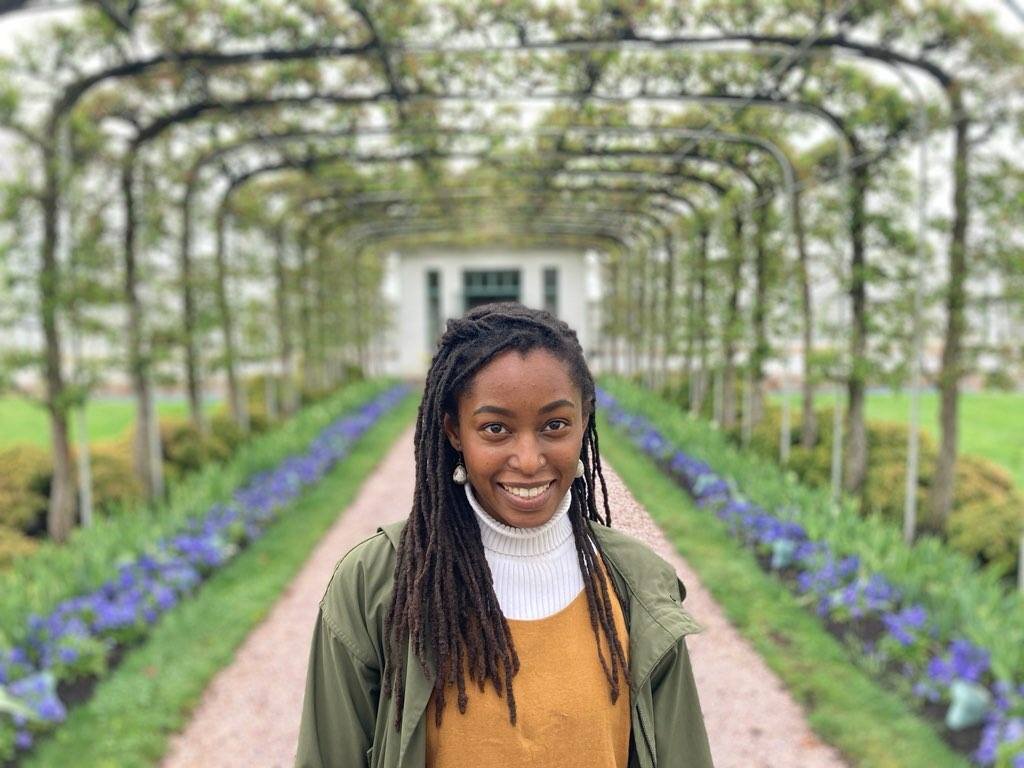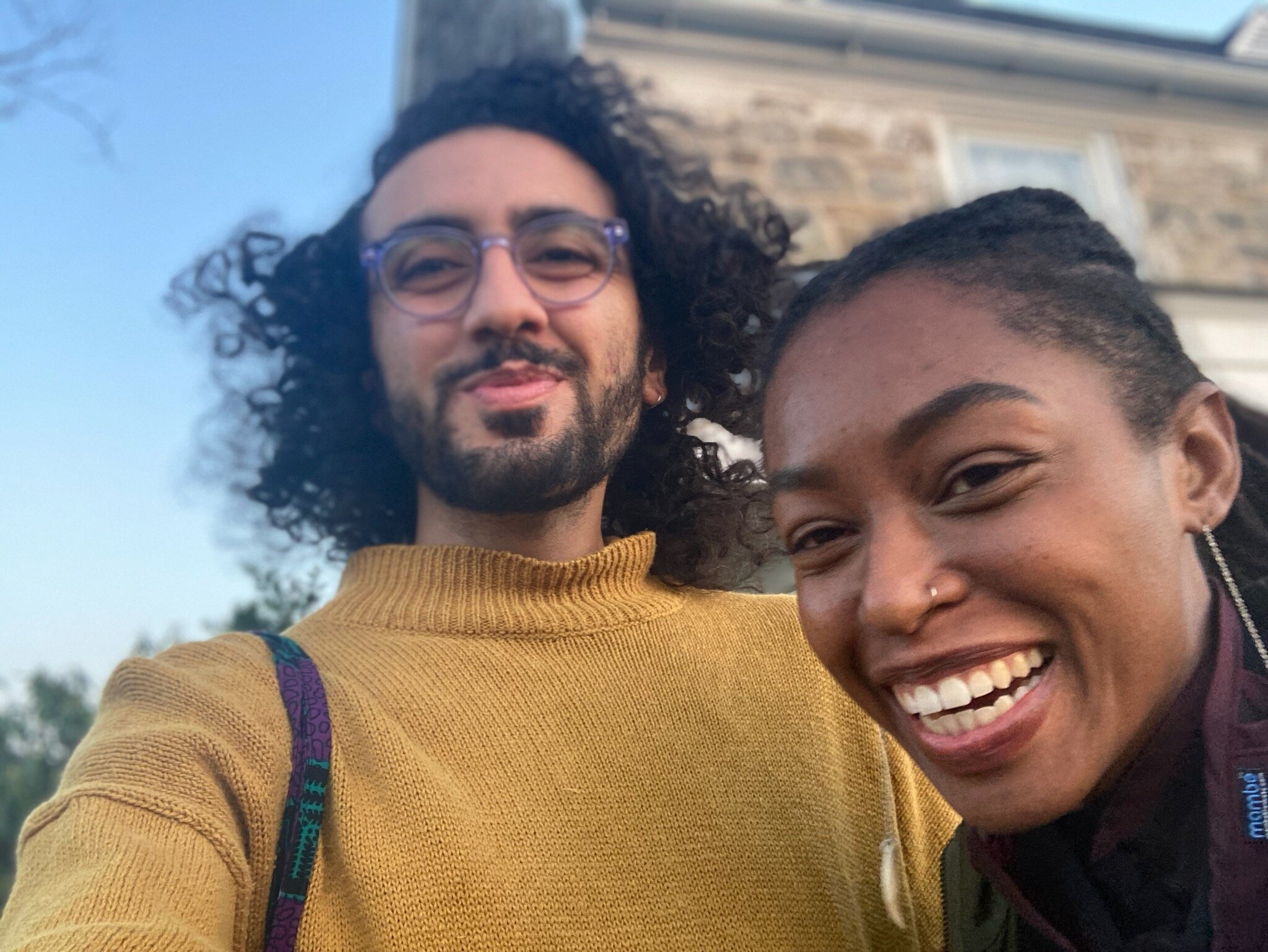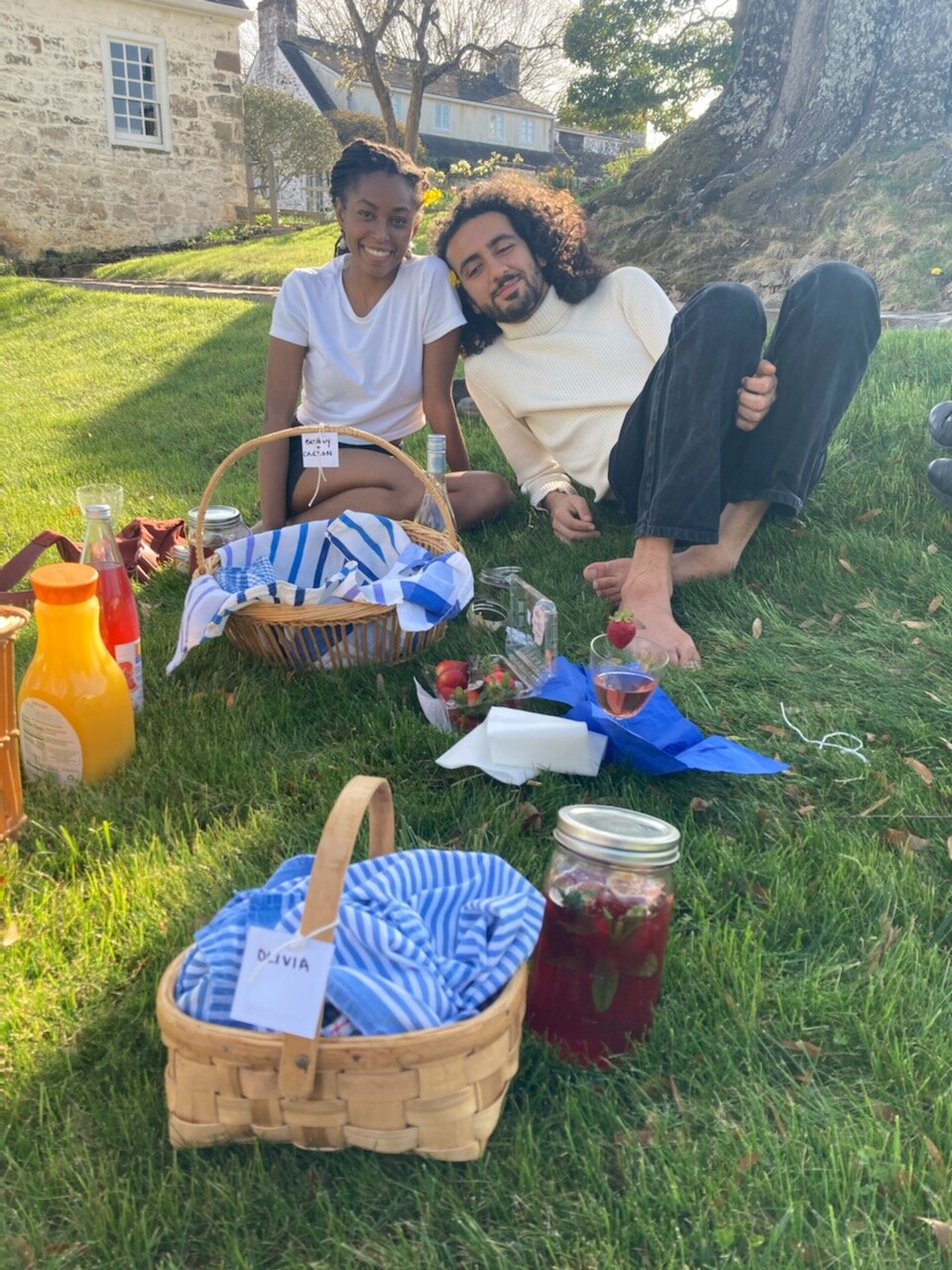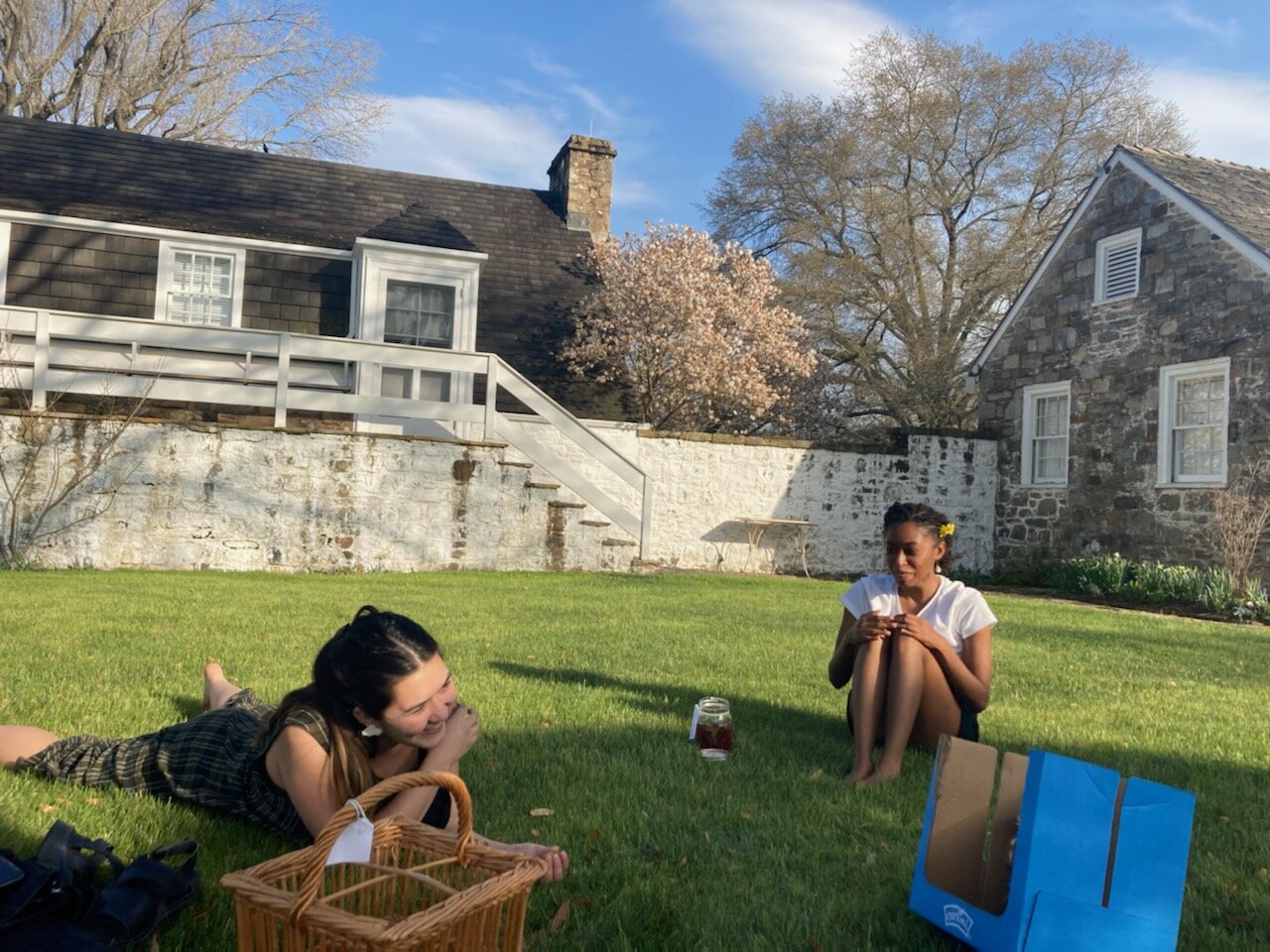Meet our Fellows: Brittany Carson and Botanical Sense of Place
Emily Ellis
At the heart of a place are plants. Not only are they the backbone of natural ecosystems, providing food and shelter for wildlife and humans alike, but they are intertwined with our cultures and histories, pushing their roots deep into our remedies, stories, and songs.
At the Oak Spring Garden Foundation, a major part of our mission is exploring and sharing the multifaceted ways that plants that shape our world and ourselves - one of the reasons why we were so excited to support 2021 Stacy Lloyd III Fellow Brittany Carson’s research.
Carson, who holds a master’s degree in Fisheries, Wildlife and Conservation Biology from North Carolina State University, studies botanical sense of place theory from an Indigenous and Local Knowledge (ILK) perspective - a knowledge system which refers to the understandings, skills, and philosophies developed by people with long histories of interaction with the natural world. She has traveled all over the globe exploring local ecologies and the different ways that people connect to the environment, having worked as a horticulturist and researcher in Madagascar, Botswana, and throughout the U.S.
While at OSGF, Carson worked on an interdisciplinary bibliographic study exploring plant species that have especially strong cultural connections to people and place. As an ecologist and gardener as well as a scholar, she hopes her research can help inspire better care and conservation of the environment.
“I'm doing research on plant uses, whether it's art, spiritual or economic, and also on the stories tied to plants in order to highlight frameworks or philosophy that can inspire people in horticulture, garden design, farming or anything like that,” she said. Carson spent several weeks at Oak Spring in April working on her project, where she was able to explore our landscape and library, as well as learn about the foundation’s efforts in sustainable land management and farming and exchange ideas with staff members and other residents.




Carson with fellow OSGF residents Beshouy Botros and Olivia Mendoza
When she began her study, Carson focused on the stories of native plants – such as agave, which has a long and intimate relationship with communities in Mexico that use it to make mezcal and tequila – but has since broadened her research to include other plant species that are culturally important for people in North America.
“I have expanded beyond researching just native plants to focusing on plants that are tied to really strong cultural practices, because I am also interested in African diasporas,” she said. “For instance, people in South Carolina are incorporating plants like sweetgrass into their culture.”
While her research has uncovered incredible stories about how people connect to plants, finding them hasn’t been easy, Carson continued. Indigenous and local voices and knowledge are frequently excluded from historical and mainstream texts concerning natural history, horticulture, and botany, so Carson has focused her study on podcasts and more modern work, most of which was created and written by BIPOC authors. Harlem Renaissance poet and gardener Anne Spencer, botanist and Citizen Potawatomi Nation member Robin Wall Kimmerer, and culinary historian and chef Michael Twitty are just several of the authors whose work has been inspiring and insightful, she said.
“For instance, in Michael Twitty’s book (The Cooking Gene), I learned that people would measure recipes and the time it would take to add ingredients by song, so they would use all these songs and rhymes and rhythms to remember how to make food,” Carson said.
Another story that struck her was that of the plant Quassia amara: out of all the plants that Swedish botanist Carlos Linnaeus named, it was the only one that was named after an enslaved person. Botanist and healer Kwasimukamba, or Graman Quassi, was born in Ghana and was enslaved, and later freed, in Suriname in the eighteenth century. He was the first person to scientifically describe Quassia amara (bitter ash) and its medicinal properties.
Carson presenting her research to staff at OSGF.
“A lot of plant knowledge was gathered from enslaved people, and some were even able to gain freedom if they knew enough,” she said. “But this is the only plant that someone was named after.”
By looking at stories like these through the lens of sense of place theory – research she hopes to share in a written article in the future – Carson hopes that others will be inspired to learn about their connection to the ecosystem, and to their community, from an Indigenous or a Local Knowledge perspective.
“Hearing these stories, and learning about what people have been doing for so long can inspire better land stewardship, especially in terms of thinking about having a relationship with the land instead of being separate from it,” she said.
As a scholar working outside of academia, Carson is grateful for the space and resources that OSGF provides researchers, she said.
“It's cool to be able to pursue ideas and be supported in academic pursuits outside of the academy, so I think Oak Spring is just amazing for having space available for that.”
If you’re interested in learning more about plants and the environment from an ILK perspective, check out the following resources recommended by Carson:
~ Anything garden related by Jamaica Kincaid
~ The Cooking Gene by Michael W. Twitty
~ The imagination of plants: a book of botanical mythology by Matthew Hall
~Braiding Sweetgrass by Robin Wall Kimmerer
~“On being” podcast with Krista Tippett: Robin Wall Kimmerer- The Intelligence of Plants
~Women who Run with the Wolves: Myths and Stories of the Wild Woman Archetype by Clarissa Pinkola Estés
~“Kincentric Ecology: Indigenous Perceptions of the Human-Nature Relationship” by Enrique Salmón
Source: Ecological Applications, Vol. 10, No. 5 (Oct., 2000), pp. 1327-1332
Published by: Ecological Society of America
Stable URL: http://www.jstor.org/stable/2641288
~ BIPOC Hort – a group of BIPOC horticulture professionals working to decolonize gardens and garden history.
We are currently accepting applications for our 2022 Stacy Lloyd III Fellowship, as well as a number of other opportunities aimed at artists, scientists, conservationists, writers, and more. More information can be found at osgf.org/residencies and osgf.org/fellowships. To read about research projects from other Stacy Lloyd Fellows, visit our alumni page or search the “Meet Our Fellows” tag.
Photos courtesy of Brittany Carson



